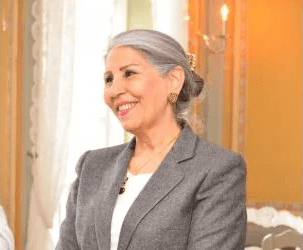Ten More years: ‘An Unbelievable Injustice’ in Iran
Commentary by Pete Haug
To better understand the injustices described here, understand first that Baha’is are enjoined by their faith to obey whatever government they live under: “In every country where [Baha’is] reside, they must behave towards the government of that country with loyalty, honesty and truthfulness.” Moreover, they must “refrain from associating themselves, whether by word or by deed, with the political pursuits of their respective nations.” Every Baha’i is bound by these laws in whatever country she or he resides.
Now consider the fate of two Baha’i women in Iran who, in November, were sentenced to their second 10-year prison terms after a hiatus of four years. Mahvash Sabet, 69, and Fariba Kamalabadi, 60, were first incarcerated in 2008 and released in 2018. At the time they were part of an informal group of five men and two women who tended to the basic pastoral needs of the Iranian Baha’i community. This was with “full knowledge of the Iranian government,” according to the Baha’I International Community (BIC) in Geneva. The BIC represents the worldwide Baha’i community at the UN and other international forums.
The BIC called the sentence “an unbelievable injustice.” It said the two women were “symbols of resilience” after already spending ten years in prison. The latest jail sentence came November 21, “after a one-hour trial … an hour which was mostly spent with the judge insulting and humiliating the defendants.” Almost four months elapsed between their July 31 arrest and their sentencing. The judge “rebuked the two women for ‘not having learned their lesson’ from their previous imprisonment.”
Since the women’s arrest, more than 320 Baha’is have been affected by individual acts of persecution, the BIC said. Dozens were arrested throughout the country and Baha’i homes were “demolished.” Government efforts to tar Baha’is through hate speech and propaganda were also exposed. At least 90 Baha’is are currently in prison or subject to ankle-band monitoring, according to the BIC.
When the two women were arrested in July, Iran’s Ministry of Intelligence issued “an appalling statement of oppressive hate propaganda against the persecuted Baha’i religious minority.” The statement justified the crackdown by accusing Baha’is of “espionage.” Those arrested were said to be “propagating the teachings of the fabricated Baha’i colonialism and infiltrating educational environments,” including kindergartens. A number of Baha’is are preschool teachers.
As mentioned above, Baha’is are constrained by their own belief system from violating government edicts forbidding such activities.
The BIC rejected these allegations, calling them “absurd and preposterous” and “outright fabrications.” It said, “What the Iranian government is doing is simultaneously an act of gross oppression and a brazen example of the worst kind of hate speech.”
A legacy of hate
Such actions are not new. The Baha’i Faith arose in Iran in 1844. Early followers were similarly persecuted and often killed. Baha’u’llah was imprisoned and exiled multiple times until he passed away in 1892, nominally still a prisoner of the Ottoman Empire in the Holy Land. Most Muslim countries marginalize Baha’is, who are considered apostates from Islam. In Iran Baha’is have been persecuted since the 19 century, yet Baha’u’llah was a Muslim, just as Christ was a Jew. Both were persecuted by clergy and governments.
A legacy of love
Both Christ and Baha’u’llah confirmed traditions of the religions from which they arose. Each proclaimed a new revelation that revitalized those traditions. For example, Christ told his followers, “A new command I give you: Love one another. As I have loved you, so you must love one another.”
Today Baha’u’llah’s teachings are available electronically in most languages. They offer guidance for today’s social problems. In one example, Baha’u’llah recognizes Judaism by referring to Moses: “Consort with the followers of all religions in a spirit of friendliness and fellowship to proclaim that which the Speaker on Sinai hath set forth and to observe fairness in all matters.”
A legacy of hope
During her decade in Tehran’s Evin Prison, Mahvash Sabet wrote poetry, published in English as “Prison Poems” (2013). She was recognized in 2017 as “an English PEN International Writer of Courage.” Of her first encounter with Sabet, her lawyer writes, “it was obvious that the Baha’i prisoners had been deprived of fresh air and daylight for a long time.”
One of Sabet’s poems, “No Boundaries,” begins, “Eye to eye and knee to knee,/free from what was and what might be…” It describes “that place of tribulation” where “a smile was enough to evoke the fragrance of green lawns, of red geranium; a single word gathered together the sanctity of humankind.”
Rejoicing in her success teaching illiterate girls to read in prison, Sabet concludes, “And some had even begun to turn the pages… had begun to read that there were no boundaries between what’s seen and said, linked together in unity/eye to eye and knee to knee.”










